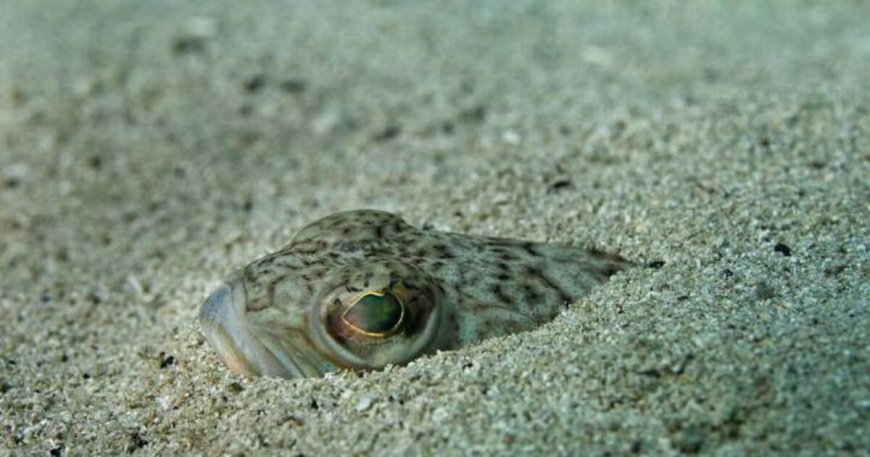Warning for Beach-goers: Beware of Poisonous Weever Fish During Hot Weather
Beach-goers are being cautioned to be extra cautious along the coast due to an increase in weever fish stings. Weever fish, which hide in sandy areas, have venomous spines that cause intense pain and swelling. The National Poisons Information Centre of Ireland advises seeking help if stung and provides tips for treatment. The warning coincides with rising temperatures expected to reach close to 30C.

Beach-goers are being warned to take extra care along the coast amid an increase in reported weever fish stings, as temperatures are set to climb by the weekend.
Weever fish bury themselves in sandy areas in low tide and can be found along the coast. They are long and are mainly brown in colour and camouflage in the sand.
The tiny fish have sharp spines containing venom on their dorsal fin. Their size and colour makes them difficult to spot, and people are typically stung by them on their foot while walking into the water in shallow areas.
A weever fish sting causes an immediate and acute burning pain, which is most intense during the first two hours, though the pain can persist for up to two weeks. The sting also results in swelling and numbness.
The National Poisons Information Centre of Ireland (NPIC) has this week issued a warning to people to beware of the tiny predator.
According to the NPIC, anyone who is stung by a weever fish should seek assistance from a lifeguard if available.
They are also advised to submerge the affected limb or wound in hot water for up to 90 minutes or until pain eases.
As the sting can result in numbness, the unaffected limb should also be immersed, as this may prevent inadvertent scalding. Those affected should be aware cold applications may worsen the discomfort, and consider paracetamol to relieve pain.
Care should be taken when pain relief is given that thermal burns do not occur due to the effects of the pain killer masking the temperature of the water used.
The NPIC also recommends examining the sting site and removing any embedded spines, while also seeking medical attention from a doctor as a tetanus and/or antibiotics may be required.
Those affected can also called the NPIC 01 8092166.
The NPIC's weever fish warning comes as temperatures are expected to reach close to 30C in the coming days.
According to Met Éireann, almost all of the country will see plenty of sunshine on Thursday, with temperatures of between 22C and 27C.
It will remain dry overnight, with the mercury unlikely to fall below 11C to 14C.
Conditions on Friday will again be very warm, with daytime temperatures of up to 28C likely.
It will also remain hot into the weekend, with temperatures on Saturday expected to climb as high as 28C or 29C, with the highest values likely to be felt in the east of the country.
Sunday will start off dry, with good sunshine in the east and north, though cloud and showery rain will move in over Munster and Connacht during the afternoon and gradually extend northeastwards through the evening and night. During the day, it will once again be very warm, with temperatures between 22C and 28C.
What's Your Reaction?
 Like
0
Like
0
 Dislike
0
Dislike
0
 Love
0
Love
0
 Funny
0
Funny
0
 Angry
0
Angry
0
 Sad
0
Sad
0
 Wow
0
Wow
0















































































































































































